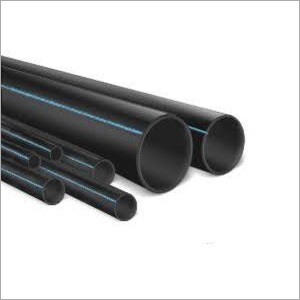The Definitive Handbook to Pipe Manufacturing Midland TX for Industrial Needs
Comprehending the Secret Advantages of HDPE Pipeline for Water and Wastewater Administration
The usage of HDPE pipeline in water and wastewater monitoring presents numerous advantages that merit consideration. Its extraordinary longevity and long life expectancy make it a favored option for many tasks. Furthermore, the material's resistance to corrosion and chemical damage improves its reliability in different settings. The advantages extend past just longevity and resistance. hdpe pipe in stock Midland TX. Discovering its cost-effectiveness and ecological impact discloses even extra engaging reasons for its extensive fostering in contemporary framework
Outstanding Sturdiness and Long Life

HDPE pipe stands out for its outstanding longevity and longevity, making it a preferred option in water management systems. Created from high-density polyethylene, these pipelines can endure significant stress and stress, ensuring reliable performance gradually. Their durable nature permits them to endure extreme ecological conditions, consisting of temperature level fluctuations and dirt motions, which can cause various other products to fall short.
The life-span of HDPE pipes often goes beyond 50 years, supplying an affordable remedy for towns and industries alike. Furthermore, the material's light-weight residential properties simplify installment, lowering labor prices and timeframes. This durability reduces the need for constant fixings or replacements, further enhancing its financial charm.
In water monitoring applications, the integrity of HDPE pipelines suggests less disturbances and boosted service continuity, making them integral to lasting infrastructure advancement. The combination of durability and long life strengthens HDPE's function as a cornerstone in effective water management solutions.

Resistance to Corrosion and Chemical Damage
While numerous products catch deterioration and chemical damages with time, HDPE pipes exhibit remarkable resistance, making them excellent for various water administration applications. This durability comes from the molecular framework of high-density polyethylene, which is inherently non-reactive and does not wear away like steels or deteriorate from exposure to extreme chemicals. As an outcome, HDPE is very efficient in atmospheres with hostile materials, such as wastewater systems that might consist of acids, bases, and natural solvents.
Additionally, HDPE pipes can endure ecological variables such as dirt acidity and saline conditions, better improving their viability for diverse applications (American Plastics HDPE Pipe for Oilfield). Their capability to keep architectural stability gradually minimizes the danger of leakages and failings, which is vital in guaranteeing the safety and security and dependability of water distribution and wastewater management systems. The resistance to corrosion and chemical damage considerably adds to the general effectiveness and longevity of HDPE piping solutions.
Cost-Effectiveness and Financial Advantages
When thinking about the financial effects of water monitoring systems, the cost-effectiveness of HDPE pipes ends up being evident. These pipes supply reduced setup and upkeep costs contrasted to typical products like metal or concrete. Their lightweight nature streamlines transportation and installation, resulting in reduced labor costs. Additionally, HDPE pipelines display a long lifespan, commonly going beyond 50 years, which translates to fewer substitutes and long-lasting cost savings.
The resistance of HDPE to deterioration and chemical damages decreases the need for pricey repair work and substitutes. The pipelines additionally sustain reliable water circulation, decreasing energy prices associated with pumping systems. By reducing leaks and water loss, HDPE pipes add to significant economic benefits for districts and markets alike. Overall, the first investment in HDPE piping can generate substantial monetary returns over the lifespan of the water monitoring system, making it a sensible option for lasting framework growth.
Environmental Sustainability and Decreased Influence

Versatility and Flexibility in Setup
Due to the fact that of their distinct properties, HDPE pipes supply amazing convenience and flexibility in installation, making them ideal for a wide array of applications. Their lightweight nature allows for less complicated handling and transportation, lowering labor prices and setup time. HDPE pipes can be curved and formed to fit various surfaces and task requirements, which is especially useful in challenging environments.
Additionally, their resistance to rust and chemical damage permits installation in varied setups without the requirement for specialized protective finishes. The ability to fuse joints produces a constant, leak-free system, boosting the overall stability and dependability of the installment. HDPE's versatility additionally accommodates ground activity, decreasing the risk of damage in locations susceptible to moving soil. Overall, these attributes make HDPE pipes not only functional but also a recommended selection for water and wastewater monitoring systems.
Frequently Asked Inquiries
Exactly How Does HDPE Pipeline Contrast to PVC in Water Monitoring Applications?
HDPE pipe offers superior flexibility, resistance to rust, and sturdiness contrasted to PVC. Its lighter weight assists in easier setup, while its long life expectancy reduces replacement expenses, making HDPE a preferred selection in water management applications.
What Is the Life-span of HDPE Piping Under Typical Conditions?
Under common conditions, HDPE pipes can have a lifespan ranging from 50 to 100 years. Their sturdiness and resistance to deterioration add to their long-lasting efficiency in different applications, making them a trusted option for framework.
Are HDPE Water Lines Recyclable After Their Life Span?
Yes, HDPE pipelines are recyclable after their service life. hdpe pipe suppliers Midland TX. click for more They can be processed and repurposed right into brand-new products, significantly minimizing ecological effect and promoting sustainability within the market, making them an eco-friendly selection for piping services
What Is the Installation Refine for HDPE Piping?
The setup procedure for HDPE pipes involves website preparation, trenching, pipeline fusion or mechanical joining, backfilling, and stress screening. Appropriate techniques ensure a resilient and efficient system for delivering water and wastewater successfully.
Can HDPE Pipeline Be Made Use Of for Both Potable and Non-Potable Water Equipments?
Yes, HDPE pipes can be utilized for both safe and clean and non-potable water systems. Their adaptability, sturdiness, and resistance to rust make them suitable for various applications, guaranteeing safe and effective transport of water in different contexts.